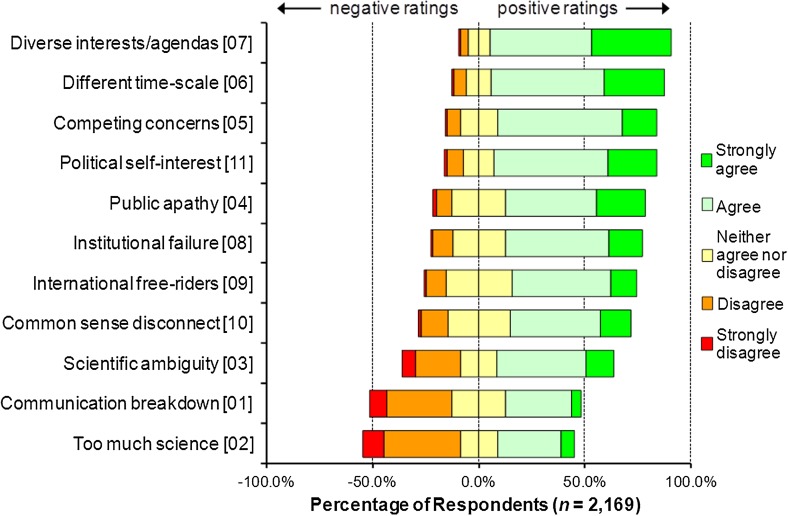Fig. 2.
Level of agreement among journal authors (n = 2169) with a series of 11 possible reasons for a lack of science uptake in environmental policy formulation and implementation. The reasons include: 01 scientists are to blame: we are simply not getting the message across clearly enough; 02 there is too much science out there and politicians do not know where to go for the best or most relevant information; 03 the science is ambiguous and there are no clear answers; politicians use the uncertainty to avoid difficult decisions; 04 there is insufficient public support for what “ought” to be done, or politicians believe that there is insufficient electoral support for necessary actions that may threaten voters’ cherished lifestyles; 05 policy has to be formulated to take into account many other legitimate issues and constraints, not least the cost of various options; 06 scientists and policy-makers work to very different time-scales; 07 politicians are caught between the policy options that emerge from the science, and other powerful interest groups with different agendas; 08 there is “institutional failure”: we have the wrong decision-making bodies, poor (or no) “joined-up” government and contradictory policies in different parts of government; 09 policy solutions require bilateral or multilateral international agreements which are susceptible to free-riding and other types of cheating; 10 the scientific advice flies in the face of received political wisdom, dogma, or other deeply entrenched beliefs; and 11 some politicians are corrupt and out to look after personal interests. The statements were drawn from Lawton (2007)

